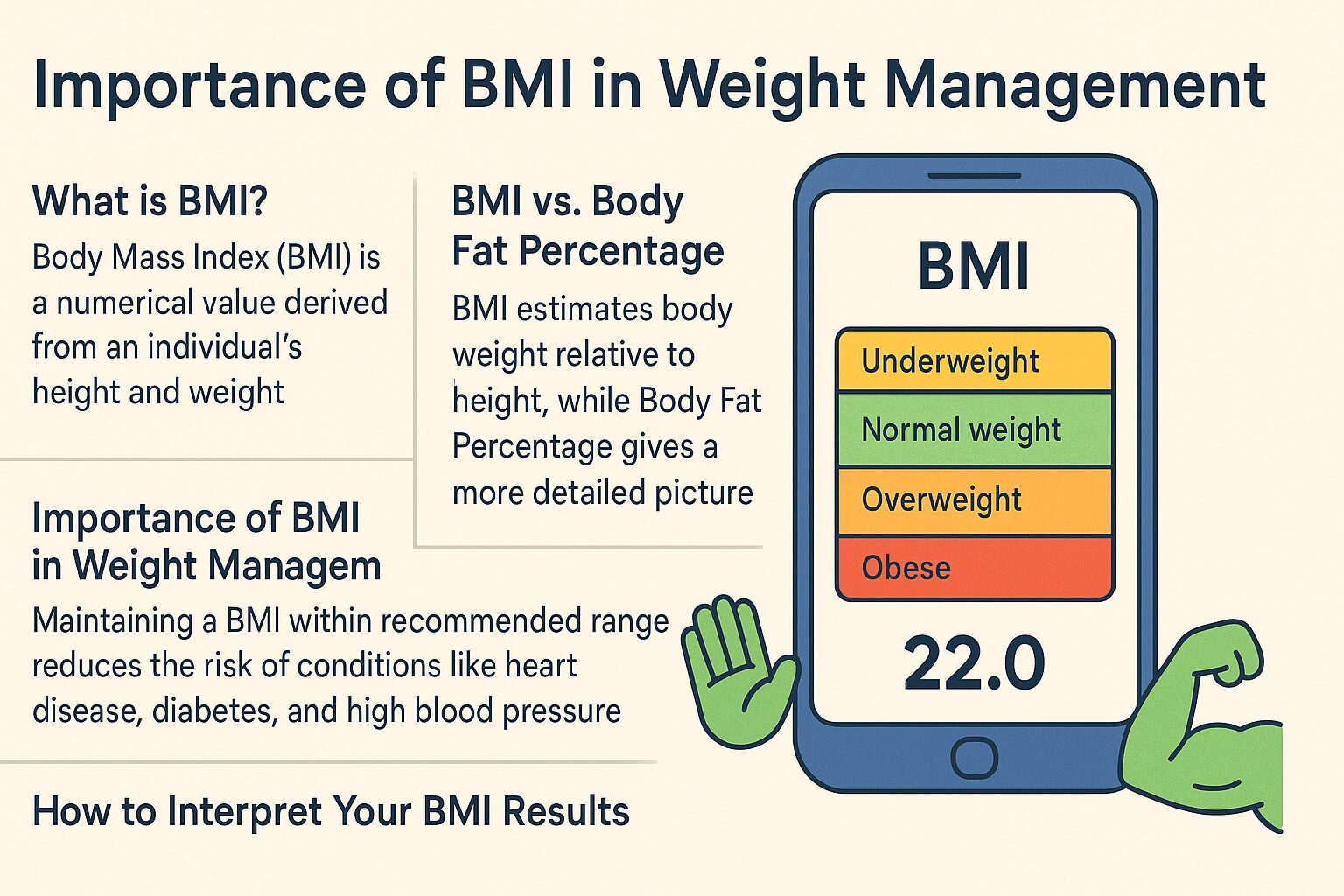Importance of BMI in Weight Management

What is BMI?
Body Mass Index (BMI) is a simple number that helps assess your body weight relative to your height. It’s calculated by dividing your weight in kilograms by the square of your height in meters (kg/m²). BMI quickly classifies adults as underweight, normal weight, overweight, or obese. This makes it a useful starting point to evaluate health risks related to body weight.
Importance of BMI in Weight Management
BMI is an important tool because it shows if your weight is healthy for your height. Keeping your BMI in a healthy range lowers the risk of chronic diseases like heart disease, type 2 diabetes, stroke, and high blood pressure. Tracking your BMI over time helps you set realistic goals for weight loss or gain and make necessary lifestyle changes.
Regularly monitoring your BMI also encourages better choices about diet, exercise, and overall wellness. When combined with other healthy habits, BMI tracking can motivate you to maintain a balanced diet and stay physically active, both crucial for long-term health.
How to Interpret Your BMI Results
- Underweight: BMI less than 18.5
- Normal weight: BMI 18.5 – 24.9
- Overweight: BMI 25 – 29.9
- Obese: BMI 30 or higher
While BMI categories provide general guidance, remember that BMI does not account for factors like muscle mass, age, gender, or ethnicity. For example, athletes or muscular individuals may have a higher BMI but low body fat. Therefore, BMI should be considered alongside other health indicators for a fuller understanding of your health.
BMI vs. Body Fat Percentage
Unlike BMI, Body Fat Percentage (BFP) measures the actual proportion of fat in your body, offering a more accurate view of health risks related to body composition. Someone with high muscle mass may have a high BMI but low BFP, meaning they aren’t necessarily unhealthy. Combining BMI with other measurements like waist circumference or BFP gives a more complete picture of overall health.
Track Your BMI Easily
Monitoring your BMI regularly is key to effective weight management. Using a BMI calculator can help you quickly measure your BMI and track your progress over time, making it easier to stay motivated and achieve your health goals.
For more ways to boost your mental and physical health, check out our blog on the Top 10 Benefits of Solving Jigsaw Puzzles.



